This week’s Fist Bump goes to Ifeanyi Okeke, VectorLink Nigeria’s Database Manager, and the VectorLink Nigeria team for facilitating the successful roll-out of VectorLink Collect for entomological monitoring across all six sentinel sites where the team supports longitudinal vector surveillance.
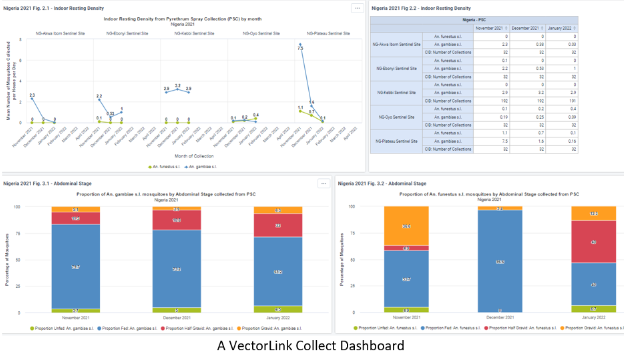
The team started transitioning from a Microsoft Access-based system to VectorLink Collect in mid-October. The team developed a phased roll-out and training approach, participating in, and then conducting a series of trainings virtually and in-person in November and December to introduce the system to different members of the team—principal Investigators overseeing the surveillance activities at each site to the data entry clerks and entomology technicians entering the data. In total, 18 people were trained across the six sentinel sites where VectorLink Nigeria conducts entomological surveillance and insecticide resistance monitoring activities.
As of last week, longitudinal monitoring data across all six sites are entered, managed, and analyzed within the VectorLink Collect system. This transition to the VectorLink Collect database, in addition to enhancing the ease of data entry and management, will ensure the availability of near-real time data to drive vector control decision making within the country. The Microsoft Access database did not provide for real-time access to data captured and stored, and data analysis and management had to be carried out manually, which was cumbersome and provided lots of room for human error.
As a result, the team is looking forward to sharing the dashboards with key stakeholders, such as the NMEP, PMI, academic institutions, and research organizations in the coming weeks and preparing for the deployment of mobile data collection in four of the sentinel sites in February or March.
Special thanks to HO M&E Backstop Lilly Siems for providing top-notch support and accompanying the team as they get up to speed on the new database.
Well done and keep it up, VL Nigeria!


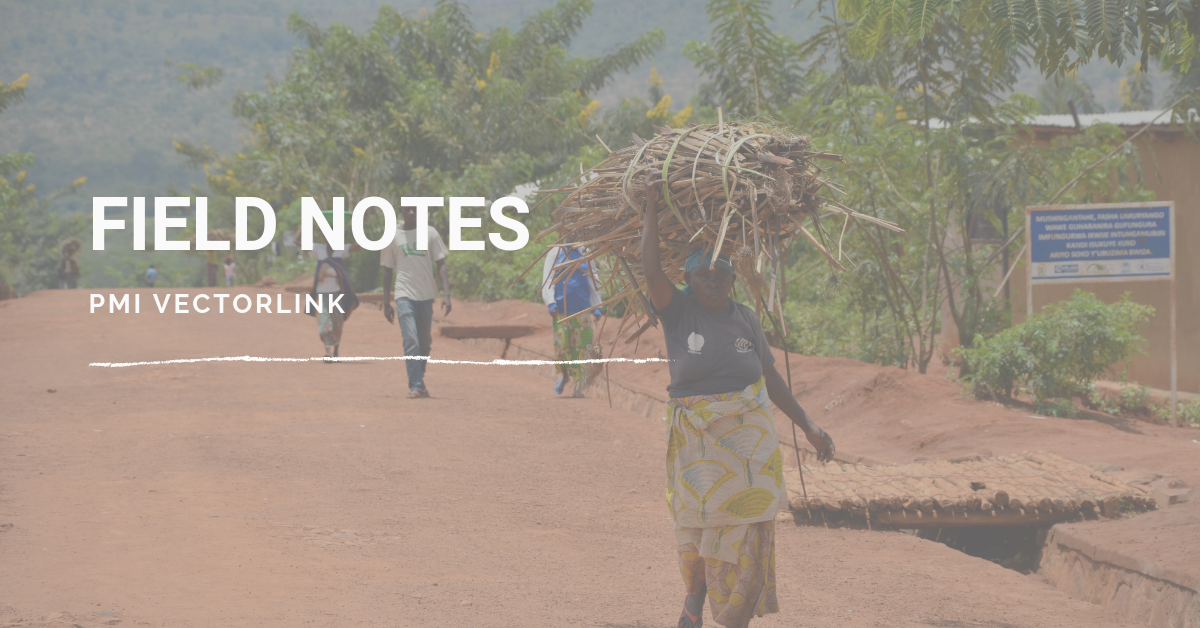
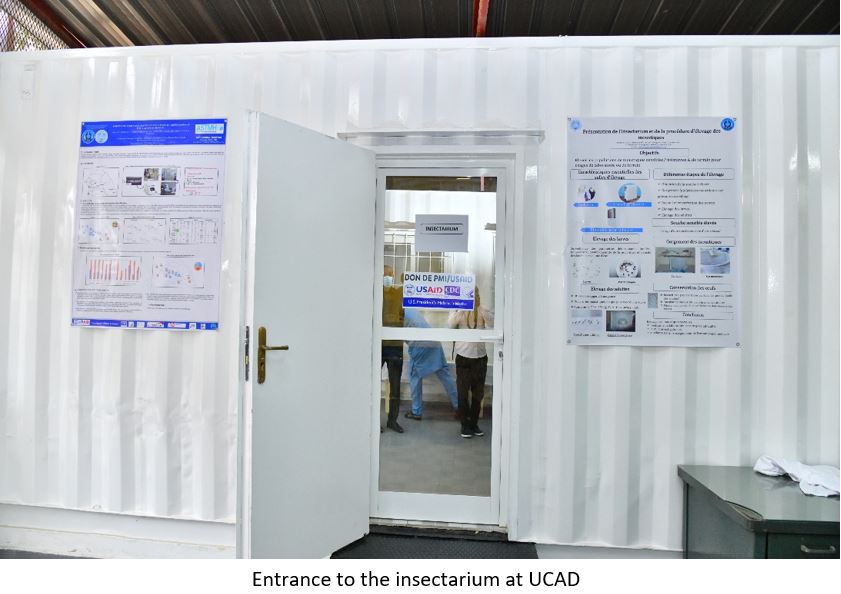 Scaling up local capacity for entomological surveillance is important for supporting national vector control activities. In Senegal, Insectaries were lacking, so this week’s Fist Bump goes to VectorLink Senegal for supporting the construction of an insectarium, by converting a 40-foot container, at Cheikh Anta Diop University of Dakar (UCAD).
Scaling up local capacity for entomological surveillance is important for supporting national vector control activities. In Senegal, Insectaries were lacking, so this week’s Fist Bump goes to VectorLink Senegal for supporting the construction of an insectarium, by converting a 40-foot container, at Cheikh Anta Diop University of Dakar (UCAD).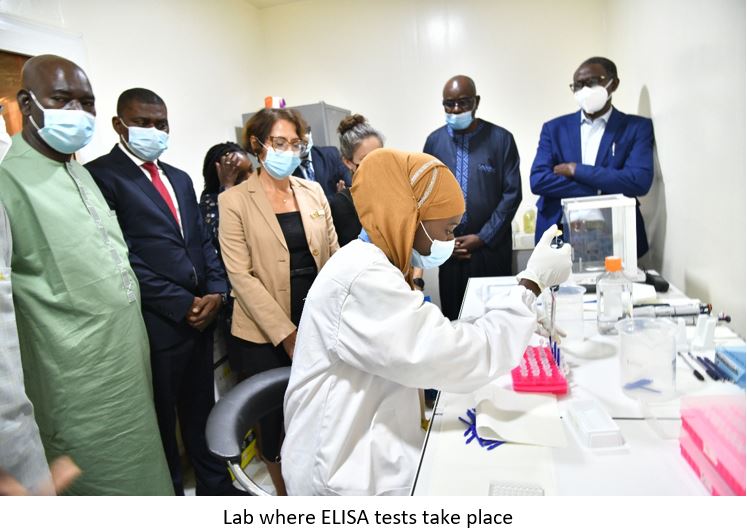
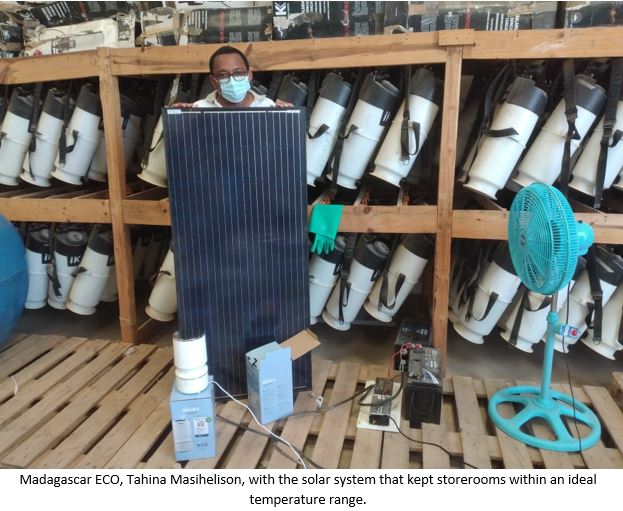 This week’s Fist Bump goes out to Tahina Masihelison, VectorLink Madagascar’s Environmental Compliance Officer for his use of solar power, a renewable energy source, to keep insecticide storerooms within the ideal temperature range.
This week’s Fist Bump goes out to Tahina Masihelison, VectorLink Madagascar’s Environmental Compliance Officer for his use of solar power, a renewable energy source, to keep insecticide storerooms within the ideal temperature range.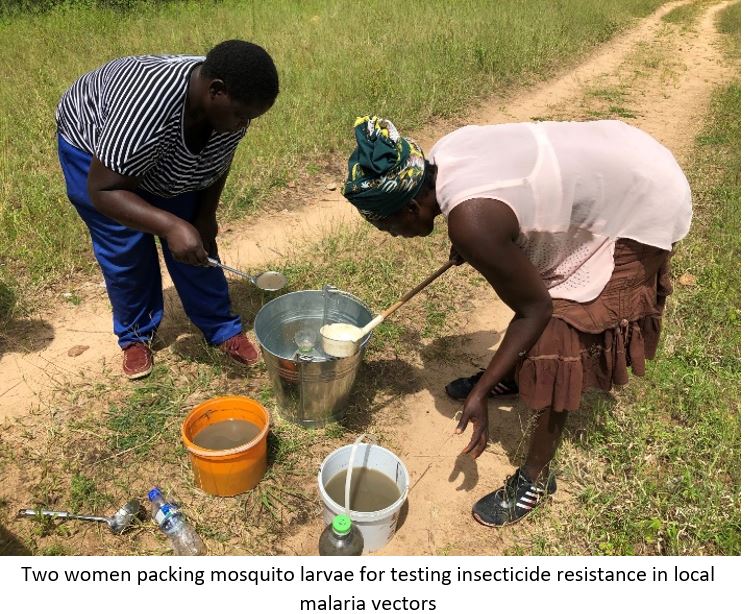 Happy New Year, Everyone! This week’s Fist Bump goes out to VL Zimbabwe for utilizing community-based entomology to collect data to build rapport with the local community in Kawere.
Happy New Year, Everyone! This week’s Fist Bump goes out to VL Zimbabwe for utilizing community-based entomology to collect data to build rapport with the local community in Kawere.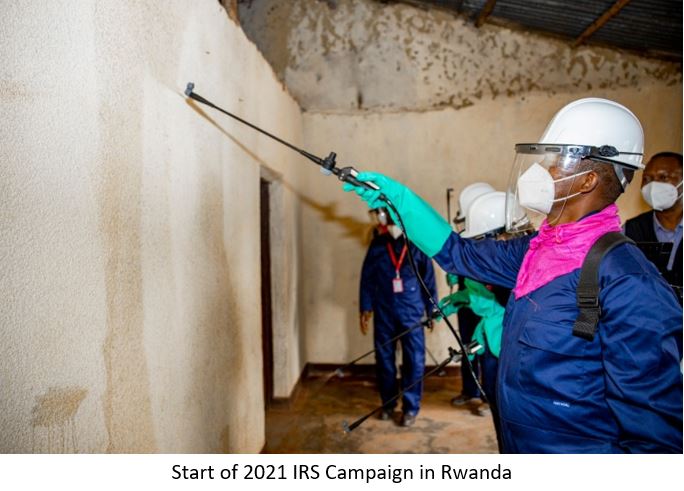
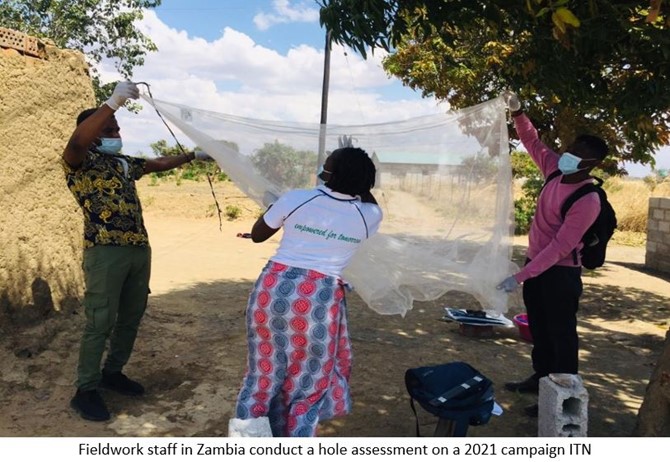 As 2021 comes to a close, it’s fitting to highlight the accomplishments of the past year for this week’s Fist Bump. Despite the ongoing COVID-19 pandemic, the PMI VectorLink Project continued to deliver high quality malaria vector control interventions. Between October 2020 and September 2021, the PMI VectorLink Project achieved the following:
As 2021 comes to a close, it’s fitting to highlight the accomplishments of the past year for this week’s Fist Bump. Despite the ongoing COVID-19 pandemic, the PMI VectorLink Project continued to deliver high quality malaria vector control interventions. Between October 2020 and September 2021, the PMI VectorLink Project achieved the following: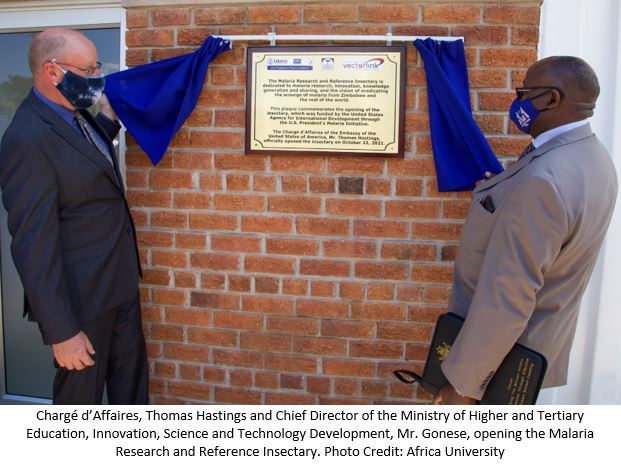 This week’s Fist Bump goes to VectorLink Zimbabwe for the opening of the Malaria Research and Reference Insectary at Africa University (AU) on October 22, 2021.
This week’s Fist Bump goes to VectorLink Zimbabwe for the opening of the Malaria Research and Reference Insectary at Africa University (AU) on October 22, 2021.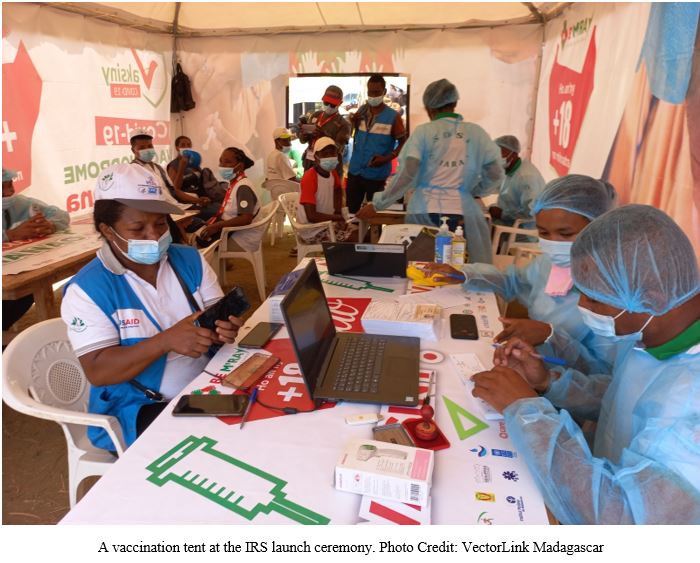 COVID-19 has showed us how important it is to keep malaria services resilient. This week’s Fist Bump goes to VectorLink Madagascar for working to protect their communities from malaria and COVID-19. The official launch for the 2021 IRS campaign took place in the commune of Ankilioaky, in the district of Toliara II, on November 12, 2021; 81 people received vaccinations at the event.
COVID-19 has showed us how important it is to keep malaria services resilient. This week’s Fist Bump goes to VectorLink Madagascar for working to protect their communities from malaria and COVID-19. The official launch for the 2021 IRS campaign took place in the commune of Ankilioaky, in the district of Toliara II, on November 12, 2021; 81 people received vaccinations at the event.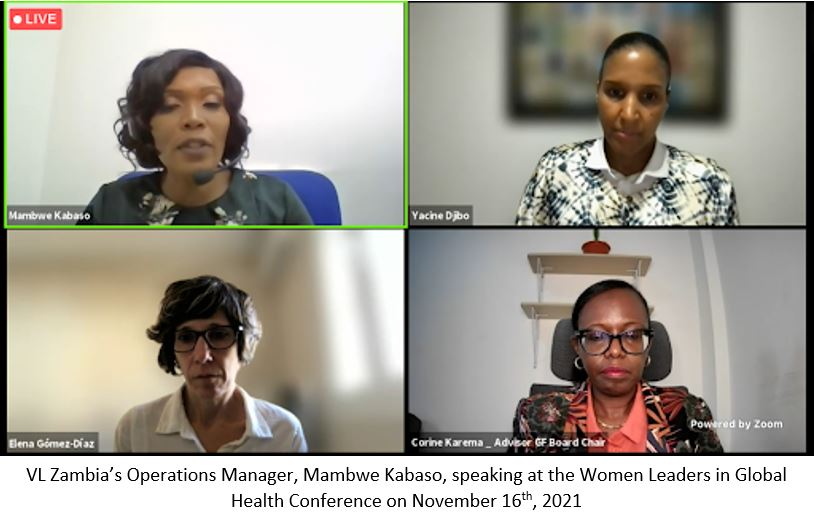 This week’s Fist Bump goes to VectorLink Zambia’s Operations Manager, Mambwe Kabaso. She participated in the Women Leaders in Global Health Conference, discussing why women’s leadership is necessary in the fight against malaria.
This week’s Fist Bump goes to VectorLink Zambia’s Operations Manager, Mambwe Kabaso. She participated in the Women Leaders in Global Health Conference, discussing why women’s leadership is necessary in the fight against malaria.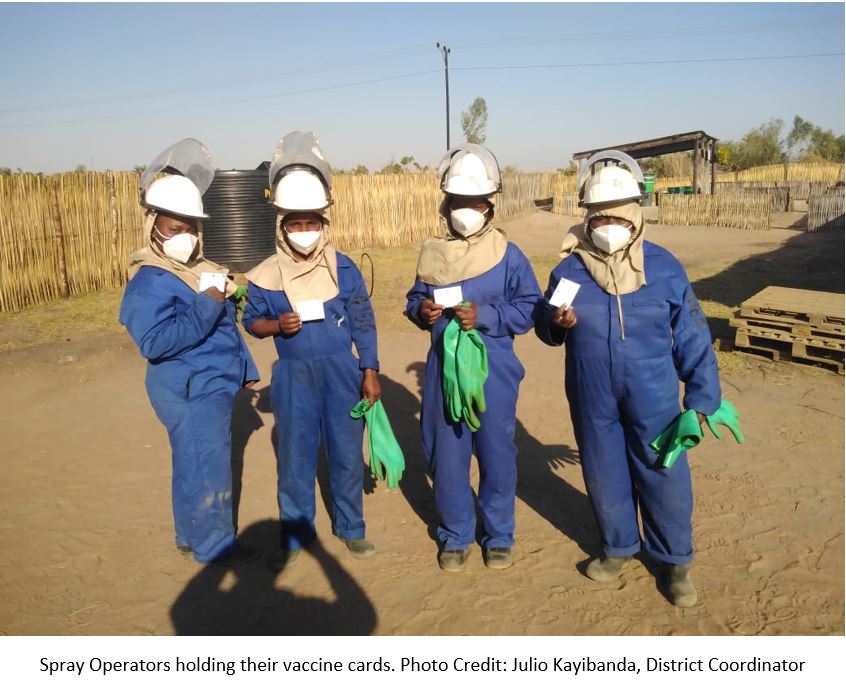 This week’s Fist Bump goes out to VL Mozambique. During its training of seasonal workers for the spray campaign, the project, in coordination with the Ministry of Health (MOH), vaccinated seasonal workers against COVID-19.
This week’s Fist Bump goes out to VL Mozambique. During its training of seasonal workers for the spray campaign, the project, in coordination with the Ministry of Health (MOH), vaccinated seasonal workers against COVID-19.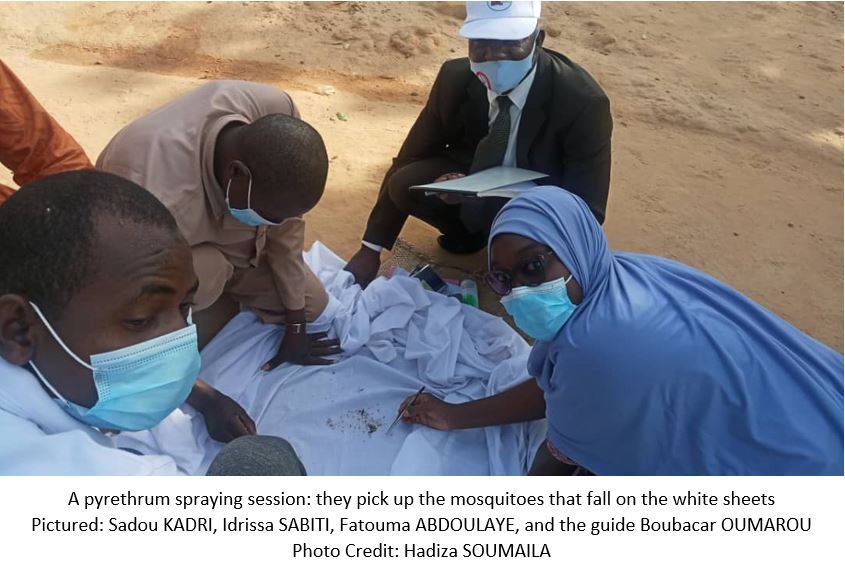 This week’s fist bump goes out to VectorLink Niger and Niger’s NMCP Deputy Director, Dr. Idrissa SABITI, for effective collaboration and actively taking part in entomological monitoring. Entomological surveillance is a key component of vector control as it provides information on vector species like spatial and temporal distribution, biting and resting behavior, and susceptibility to insecticides. VectorLink Niger, in collaboration with CERMES and NMCP, conducts monthly vector bionomics monitoring in six selected sentinel sites, and tests vector susceptibility to insecticides in fifteen sites.
This week’s fist bump goes out to VectorLink Niger and Niger’s NMCP Deputy Director, Dr. Idrissa SABITI, for effective collaboration and actively taking part in entomological monitoring. Entomological surveillance is a key component of vector control as it provides information on vector species like spatial and temporal distribution, biting and resting behavior, and susceptibility to insecticides. VectorLink Niger, in collaboration with CERMES and NMCP, conducts monthly vector bionomics monitoring in six selected sentinel sites, and tests vector susceptibility to insecticides in fifteen sites.